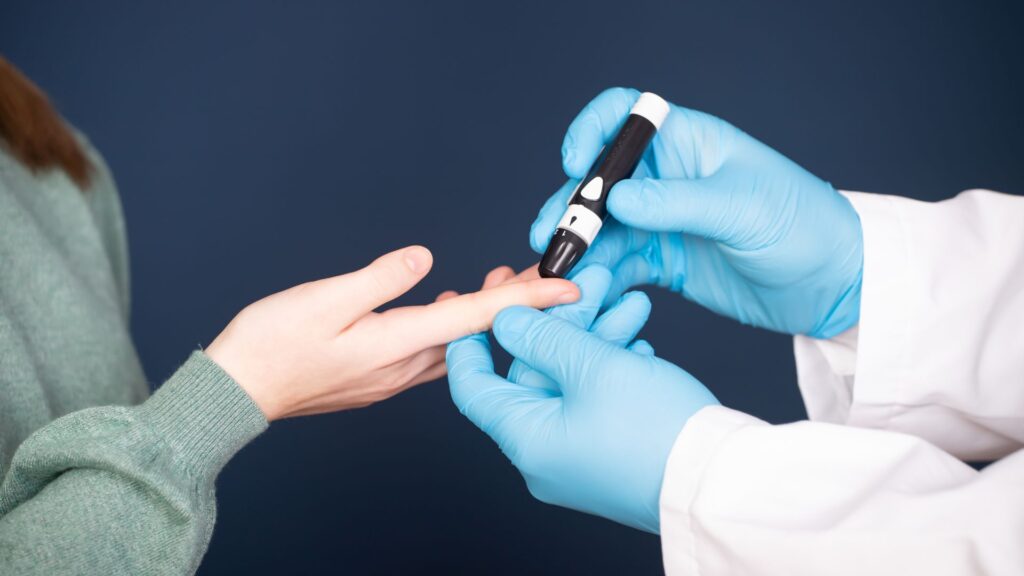Managing Type 2 diabetes effectively often requires significant lifestyle adjustments. These changes can greatly impact blood sugar levels, overall health, and quality of life. Monitoring these changes is essential to ensure that they are having the desired effect. Here’s a comprehensive guide to tracking lifestyle modifications for Type 2 diabetes.
Keep a Detailed Food Diary
A food diary is a valuable tool for managing Type 2 diabetes. Record everything you eat and drink, noting portion sizes and the time of consumption. This helps you and your healthcare provider identify patterns and make necessary adjustments. Pay particular attention to carbohydrate intake, as carbohydrates have the most direct impact on blood sugar levels. Use apps or journals to track your meals and review them regularly.
Record Everything You Eat and Drink
Begin by documenting every item you consume throughout the day, including meals, snacks, and beverages. Note the type of food, portion sizes, and ingredients.

Be precise about the quantity, as even small changes in portion sizes can affect blood sugar levels. For instance, instead of writing “fruit,” specify “one medium apple” or “a half-cup of strawberries.”
Include the Timing of Your Meals
Tracking the timing of your meals and snacks is crucial for understanding how your body responds to different foods throughout the day. Record when you eat and drink, and observe how your blood sugar levels change in response. This helps identify patterns, such as whether eating certain foods at specific times affects your blood sugar.
Monitor Carbohydrate Intake
Carbohydrates have a significant impact on blood sugar levels, so it’s important to monitor your intake carefully. Include details about the type of carbohydrates you consume, such as whole grains, fruits, vegetables, or refined sugars. Use nutritional labels or a carbohydrate counting guide to assess the amount of carbs in your meals and snacks.
Note Your Blood Sugar Readings
Incorporate your blood sugar readings into your food diary. Record your glucose levels before and after meals to see how different foods and portions affect your blood sugar. This information helps you adjust your diet to achieve better control over your blood sugar levels.
Identify Symptoms and Reactions
Alongside your food and drink entries, note any symptoms or reactions you experience, such as fatigue, dizziness, or cravings. This can help you pinpoint foods that may be causing adverse effects or those that leave you feeling energized and satisfied.
Track Your Blood Sugar Levels
Regular monitoring of blood sugar levels is crucial. Use a glucose meter to check your levels at different times of the day—such as fasting, before meals, and two hours after meals. This helps you understand how your lifestyle changes affect your blood sugar. Keeping a log of your readings can also be beneficial for discussions with your healthcare team. Ensure your monitoring routine aligns with your doctor’s recommendations.
By tracking your blood sugar levels carefully, you can gain valuable insights into how your lifestyle choices and treatment plans affect your diabetes. This information enables you to make informed adjustments, ultimately leading to better blood sugar control and improved overall health.
Monitor Physical Activity
Exercise plays a key role in managing Type 2 diabetes. Track your physical activity, including the type, duration, and intensity of workouts. Use a fitness tracker or app to record your daily steps and exercise sessions. Aim for at least 150 minutes of moderate-intensity exercise per week, as recommended by health guidelines. Evaluate how different types of exercise impact your blood sugar levels and overall well-being.
Monitoring physical activity for Type 2 diabetes involves a systematic approach to tracking and evaluating your exercise routine. By using appropriate tools, setting goals, and assessing the impact of different activities on your blood sugar levels, you can optimize your physical activity plan. Consistency, variety, and paying attention to your body’s responses are crucial for effective diabetes management. If you need guidance or support, consult with healthcare professionals to create a tailored exercise plan that aligns with your individual needs.
Assess Weight Changes
Weight management is an important aspect of Type 2 diabetes care. Regularly check your weight and monitor any significant changes. Weight loss can help improve insulin sensitivity and blood sugar control. Conversely, weight gain may impact diabetes management. Keep track of your weight in a journal or app to identify trends and discuss them with your healthcare provider.
Evaluate Sleep Patterns
Poor sleep can negatively affect blood sugar control. Monitor your sleep patterns and quality, noting the number of hours you sleep and any disturbances. Aim for 7-9 hours of quality sleep each night. Use sleep tracking apps or devices to help assess your sleep patterns and address any issues that arise, such as insomnia or sleep apnea.
Manage Stress Levels
Stress can influence blood sugar levels and overall health. Keep track of your stress levels and identify triggers. Consider using stress management techniques such as mindfulness, meditation, or yoga. Regularly assess how your stress levels impact your diabetes management and incorporate stress-reducing practices into your routine.
Schedule Regular Check-ups
Regular visits to your healthcare provider are essential for monitoring the effectiveness of lifestyle changes. During these visits, discuss your progress, review your blood sugar logs, and address any concerns. Your healthcare provider can offer personalized advice and adjust your treatment plan as needed.
Conclusion
Monitoring lifestyle changes for Type 2 diabetes is crucial for effective disease management. Regular tracking of diet, exercise, and blood sugar levels can help identify patterns and adjust treatment plans. Adopting a structured approach to monitoring can enhance control over the condition and improve overall health outcomes.
For personalized advice and support, visit Dr. Shumard’s practice in San Marcos, CA. Our team is dedicated to helping you navigate lifestyle adjustments and achieve better diabetes management. Reach out to us for comprehensive care and guidance tailored to your needs.